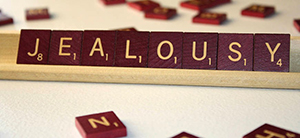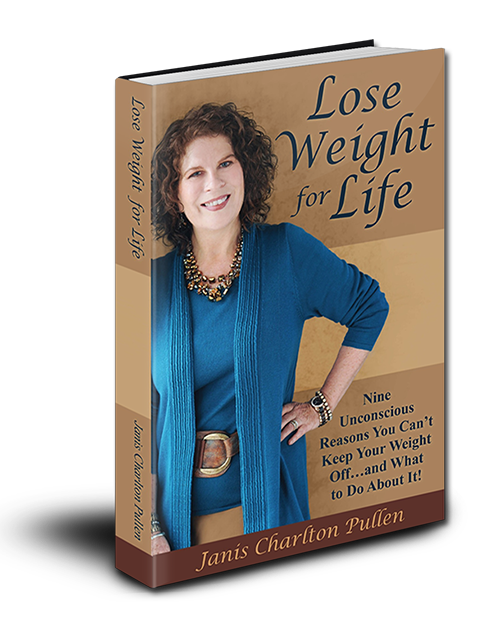From Fat to Fabulous – My Story
I have struggled with weight since I was a child. I remember at an early age asking to be excused from the Thanksgiving dinner table at my grandmother’s home. Everyone gasped and asked what was wrong; I still had food on my plate. Our family belief that something was wrong if you didn’t finish your meal transferred to me in that very moment.
I was taught that I must eat everything on my plate because the children in China were starving. My dad’s words ring as loudly now as they did decades ago: “Take all you want, but eat all you take.” Of course, when you are serving yourself, you think you’re hungrier than you are, so it’s easy to take too much. But you still had to eat it all; our family was a collective member of the clean plate club. The habits were being formed early about not wasting food. I never considered until many years later that, when I ate everything on my plate instead of paying attention to my stomach, I was treating my body as a substitute garbage disposal.
The habits were soon embellished with emotional components of eating. My parents divorced when I was six. I remember thinking, “Daddy left because I was not a good enough little girl.” Then my mother died suddenly four months later in December, just before my seventh birthday and Christmas. My young interpretation created the belief that I was not good enough and that I was not lovable.
Feeling worthless and unlovable are terrifying ways for anyone, especially a young child, to view herself. So I learned that food could numb and comfort the hole in my heart. I began the road of emotional eating and body image problems as I developed a love-hate relationship with food … and myself.
I also learned as a child that food equals love. Both of my grandmothers were excellent cooks, so when my sister and I visited either of them, I knew they loved us when they prepared our favorite meals. To this day, a homemade lemon meringue pie evokes feelings of love and acceptance.
Fast forward to teen age and early adulthood. Twiggy, the British teenage model, actress, singer, and one of the world’s first supermodels, set the standard of beauty for girls during the mid-1960s with her skinny, boy-shaped figure from which her nickname was derived. Other models of that time showcased the look that we now call anorexic—thin bodies, sunken cheeks, and eyes like saucers. The curvy and sometimes voluptuous actresses of the 1950s and early 1960s, including Marilyn Monroe and Brigitte Bardot, were no longer role models, especially for girls my age.
With an active lifestyle, my body was fit and toned, not fat. However, I was shapely, with curves, nothing like Twiggy. So I decided that I WAS too fat and began to crash diet. I tried every diet known to mankind: diet colas as a meal substitute, the grapefruit diet, the cabbage soup diet, diet chocolate squares called Ayds Reducing Candy, meal replacement shakes. Starving and bingeing gave way through the years to no fat, high-carb, low-carb, vegetarian, Atkins, Weight Watchers, Jenny Craig, NutriSystem, and fasting … to name a few! I turned into a world expert in weight loss, from my extensive reading and research to my years of experience—my own and others. But something was still missing in my ability to keep the weight off.
Considering the bad habits, the emotional eating, and the striving to change my body type, it’s no surprise that my cycle of gaining and losing weight messed up my metabolism. Between binges, my body thought I was starving, so it became harder and harder to drop the pounds. As I got older, my weight would go up and down, but with each cycle the gains were higher and the losses were not as low.
Over the course of 20 years my weight ranged from 30 pounds underweight to 70 pounds overweight. When I was skinny, my bones hurt when I was lying in bed or sitting in a hard chair. And I still didn’t like myself or my body any better when I was thin. When I was fat, I despised myself and my body. I felt ugly and uncomfortable in my clothes. I isolated myself socially, emotionally, and physically due to embarrassment and shame. I lacked energy and vitality. My blood pressure was alarmingly high, my joints hurt, and I was prediabetic.
The final straw to this struggling and suffering pattern from anorexic to obese occurred during a ballroom dance performance in front of 300 people when the zipper on my costume broke, exposing my body’s rolls of fat. I had not realized how much weight I had gained since the previous competition when I last wore the costume. I was humiliated and ashamed. I silently declared that something HAD to change.
Desperate for relief, I began the inner work—the emotional/psychological/spiritual components, rather than just the physical ones, which addressed only diet and exercise. I released my excess weight, and I never became anorexic again. I learned to love myself. I began a new career as a life coach because I want to help others learn to love themselves and succeed too. I identified the 9 sabotage patterns that keep us fat and what to do about them. The #1 Sabotage Pattern was the hardest form me to break, and it was the most transformational.
If you or someone you know would like to learn about the #1 Sabotage Pattern Preventing Permanent Weight Loss and get proven tips to eliminate it, please download my FREE report and start using these tips today…
Why People Can’t Keep Their Weight Off
The Problem: Statistics show that people who lose weight will gain some or all of it back; usually they regain even more! This is true even for people who have had weight loss surgery. Statistics also show that lottery winners go broke within a few years of winning. Why is this? I was one of those people!
The Secret – Ontological Sabotage Patterns: Although I tried every diet known to mankind, I only addressed two components of weight loss: diet and exercise. I never realized until later that the third component was missing: transforming the ontological sabotage patterns. Ontology is the study of the whole human being, including beliefs, perspectives, judgments, both unconscious and conscious mindsets, thought processes, and emotional triggers. Simply stated, ontology is the mental/emotional part of weight loss. I have distinguished 9 sabotage patterns to permanent weight loss. They also emerge in every other areas of life: weight, money, career, relationships, etc. Sabotage patterns usually emerge in multiples of two or three at a time. They may be conscious or subconscious. And they are at the root of why people regain their weight.
The Transformational Shift: In order to stop the sabotage pattern, we first must notice what is happening, and distinguish it as a pattern, not just a random set of behaviors. Simply recognizing the pattern begins our journey to balance and health. Presence and awareness practiced daily helps people succeed in their goals, even before they take other action steps.
Summary: In achieving and maintaining our goals, we must consider this vital area of ontology. In distinguishing the 9 Sabotage Patterns and transforming them, not only we reach and maintain our goals, we will also flourish in all other areas…because how we do one thing is how we do anything.
Learn More: If you or someone you know would like to learn about the #1 Sabotage Pattern Preventing Permanent Weight Loss and get proven tips to eliminate it, please download my FREE report and start using these tips today
[O.W.W.L. Success Tip] Are you emotionally irresponsible? How do you know?
Many of my clients and O. W. L. Certified Coaches didn’t really understand the role emotions have on their lives, including wealth, weight, and leadership. They either feel emotions deeply, which distracts them from their goals, or they don’t feel them at all. Either way is not a powerful, responsible strategy.
 Mother Teresa once said, “Let us always meet each other with a smile, for the smile is the beginning of love.”
Mother Teresa once said, “Let us always meet each other with a smile, for the smile is the beginning of love.”
This is a perfect example of being emotionally responsible. Mother Teresa knew what science is now proving: our emotions literally change our world and impact those around us either positively and/or negatively.
Leaders’ emotions drive their team and actually impact employee morale, job satisfaction and productivity. In recent studies, it has been proven that our emotions are contagious. Just like the flu, we can catch another persons stress, negativity and/or happiness.
According to studies conducted by Dr. Paul Ekman, universal emotions like surprise, fear, happiness, disgust, contempt and sadness are found in all cultures and nationalities, and are detectable even when a person is attempting to conceal them. They are transferred to others through our facial expressions, body language, postures, and voices.
Emotions not only can be transferred through personal contact, they are also finding them being transferred through social media. In a collaborative Facebook study with Cornell University, UC San Francisco and Facebook, it was found that people exposed to positive or negative posts on FB, would follow suit with a positive or a negative post, depending on what they saw. The effect of the posts would last about a week with them continuing to post positive or negative posts depending on what they had been exposed too.
You have probably experienced this in your family, at work, or being involved with people anywhere. Some people come in and are a beam of light; others come in and suck the air out of the room with their cloud of negativity. The big question is: Who are you? How do you show up? Do people love seeing you show up, or are they secretly dreading your appearance?
These are some difficult questions and often not ones you want to know the answer to. However, awareness is the key to change. Being an authentic leader requires you to know yourself and your impact on others.
We are all called to be kind, civil, and respectful. One way to develop this quality is through Loving-Kindness Meditation. This meditation focuses your attention on actually being the light or being loving and kind in the world.
One practice is to daily sit quietly, take some deep breaths, and offer thoughts of loving/kindness to you, others and to all humanity everywhere. Do this for about 5 minutes daily and see your life and the impact you have on others transform.
Sending you loving kindness,

PS. Becky Benes hosts the A. W. E. (Authentic Women Empowerment) November 4, 2015. Click here for details and registration.
PSS: The 2015 O. W. L. Coach Certification and Training Program has 2 more openings. If you know of anyone who interested in helping the obesity crisis, become a powerful wellness coach, and build a profitably coaching practice, please have them contact us at Support@JanisPullen.com.
[O.W.W.L. Success Tip] Would you rather work hard or work soft?
Do you feel you are really working hard?
What would it look like if you chose to “work soft”…and get everything.
 In observing and buddying with Ellen for two years, I have noticed that she runs her very lucrative coaching business while raising two boys and a husband. (…not raising the husband, but having one!) She also takes the summer months off every year, runs several programs at once, and has written several books. Ellen doesn’t work; she PLAYS! She giggles when she has a breakthrough. She calls breakdowns “interesting.”
In observing and buddying with Ellen for two years, I have noticed that she runs her very lucrative coaching business while raising two boys and a husband. (…not raising the husband, but having one!) She also takes the summer months off every year, runs several programs at once, and has written several books. Ellen doesn’t work; she PLAYS! She giggles when she has a breakthrough. She calls breakdowns “interesting.”
What I have gleaned from Ellen’s philosophy is that “working soft” is a mindset. It includes having inspired action and joyful implementation. It shifts “have to and should” to “delighted to and excited to.” Working soft doesn’t make anything wrong or bad. It makes things a puzzle or a game or an opportunity.
Change your philosophy to “I work soft, not hard” by asking yourself these questions:
- What sabotaging beliefs do you have that feed the working hard cycle? E.g. I have to trade time for dollars, everything takes longer to do, I have to do it all myself
- What new beliefs will you practice instead? E. g. I am fully-supported by excellent people, I can get two hits with one swing, self-care is my first priority
I am a champion for you getting the life you love!

PS. Learn more about working soft through the 2015 O. W. L. Coach Certification and Training Program. Please contact Support@JanisPullen.com for information regarding this important avenue of fulfillment and income.
Success Story:
You’re like one of those really, really huge trees in the redwoods forest – your roots go so deep, your branches are so expansive – you reach the heavens, and entire colonies grow and flourish in your arms.
Sue Tsigaros, Executive Mastery Coach, Sidney, Australia
[O.W.W.L. Success Tip] What is your relationship to Jealousy?
 As you may have read, my spring and summer months helped me to reinvent and recharge myself. One of the things I did was to release people, things, and energies that did not support or serve me. One of these includes jealousy of others regarding what I did do or didn’t do that they had handled and I didn’t. I got help from this from a mentor, who taught me this:
As you may have read, my spring and summer months helped me to reinvent and recharge myself. One of the things I did was to release people, things, and energies that did not support or serve me. One of these includes jealousy of others regarding what I did do or didn’t do that they had handled and I didn’t. I got help from this from a mentor, who taught me this:
Jealousy Tips:
- Feeling Jealous Means You’re Ready To Become A New, Higher Version Of Yourself
- Jealousy Can’t Grow In A Garden Of Gratitude
- Jealousy Is A Mirror For Where You’ve Been Afraid To Grow
- Stop Telling Your Old Tale…It’s Time To Tell A New Story Of Success
Warmly,

PS. Is your soul calling you to help people and make a difference? If so, you MUST check out the third annual O. W. L. Coach Certification and Training Program, which begins this week. Please contact Support@JanisPullen.com for information regarding this important avenue of fulfillment and income.
Success Story
My name is Blair Boyer and I am the VP of Professional Development for HRMA of NM. Janis was gracious enough to volunteer her time and knowledge to facilitate a wonderful presentation to our local chapter titled, “Authentic Leadership: Secrets to Effective Human Resource Management”. Using a wonderful mix of knowledge, wisdom and humor, Janis delivered an engaging and educational presentation. I would highly recommend Janis as a speaker and look forward to potentially utilizing her skills again for our chapter.
Blair R. Boyer
Director of Human Resources – Dion’s
